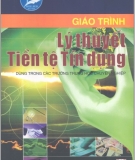TÀI LIỆU SỐ
- Quản trị kinh doanh (1962 )
- Tài chính - Ngân hàng (1392 )
- Công nghệ thông tin (1454 )
- Cơ khí - Tự động (1000 )
- Kỹ thuật xây dựng (843 )
- KT Cơ - Điện - Điện tử (1202 )
- Kế toán - Kiểm toán (985 )
- CN Hóa học - Thực phẩm (948 )
- Nông nghiệp - CN Sinh (958 )
- Môi trường (629 )
- Du lịch - Việt Nam học (622 )
- Ngoại ngữ (487 )
- Kiến trúc - Mỹ thuật CN (301 )
- Luận văn - Báo cáo (772 )
- Y khoa (1371 )
- Môn học chung (685 )
-
Kỹ năng mềm
(310 )
Danh mục TaiLieu.VN
- Mẫu Slide Powerpoint
- Luận Văn - Báo Cáo (344720)
- Kinh Doanh Marketing (65512)
- Kinh Tế - Quản Lý (48934)
- Tài Chính - Ngân Hàng (55898)
- Công Nghệ Thông Tin (142209)
- Tiếng Anh - Ngoại Ngữ (47066)
- Kỹ Thuật - Công Nghệ (134345)
- Khoa Học Tự Nhiên (107174)
- Khoa Học Xã Hội (82451)
- Văn Hoá - Nghệ Thuật (54408)
- Y Tế - Sức Khoẻ (173915)
- Nông - Lâm - Ngư (62504)
- Kỹ Năng Mềm (29016)
- Biểu Mẫu - Văn Bản (27610)
- Giải Trí - Thư Giãn (51994)
- Văn Bản Luật (198854)
- Tài Liệu Phổ Thông (402015)
- Trắc Nghiệm Online (213578)
- Trắc Nghiệm MBTI
- Trắc Nghiệm Holland
Tài liệu nổi bật
Kết quả 121-132 trong khoảng 310
-
Ebook Con người từ đâu đến: Phần 1
Vũ trụ thật bao la và diệu kỳ, các bạn đã biết được những gì xung quanh mình? Vai trò của nước đối với sự sống, sự tiến hoá của sinh vật, di truyền - ngọn nguồn của sự sống, con người đến từ đâu và con người đã trở thành chủ thể của trái đất như thế nào?... Hãy bắt đầu khám phá những điều đơn giản với cuốn sách “Con người...
98 p ntt 26/08/2021 124 1
-
Ebook Con người từ đâu đến: Phần 2
Phần 2 của cuốn sách 'Con người từ đâu đến' sẽ cung cấp cho các bạn những kiến thức cơ bản về Mendel và Định luật di truyền, sau đó sẽ cung cấp cho bạn đọc những thông tin về cuộc hành trình truy tìm nguồn gốc loài người, về người tiền sử và hành trình con người trở thành chủ nhân của Trái đất,...
46 p ntt 26/08/2021 110 1
-
Giáo trình Kỹ năng giao tiếp nhằm trang bị cho người học kiến thức và kỹ năng giao tiếp như: nhận biết các dấu hiệu bên ngoài của đối tượng giao tiếp, định vị trong giao tiếp, xây dựng và trình bày các tư liệu viết, trình bày một vấn đề trước tập thể, tổ chức và tham gia thảo luận,chủ động và tích cực rèn luyện để phát triển kỹ năng...
92 p ntt 25/06/2021 179 0
-
Chapter 4 - Influencing: power, politics, networking, and negotiation. Learning objectives of this chapter include: Is power good or bad for organizations? Position power, types of power, acquiring and losing power, common organizational political behaviors,...
38 p ntt 11/04/2021 140 1
-
Chapter 2 - Leadership Traits and Ethics. Learning objectives of this chapter include: List the benefits of classifying personality traits, describe the big five personality dimensions, explain the universality of traits of effective leaders, discuss why the trait of dominance is so important for managers to have, state how the achievement motivation theory and the leader motive profile are related and different.
44 p ntt 11/04/2021 117 0
-
Chapter 3 - Leadership Behavior and Motivation. Learning objectives of this chapter include: Behavioral theory paradigm; leadership behavior and leadership style; university of iowa leadership styles; university of michigan leadership model: two leadership styles, one dimension; the leadership grid;...
59 p ntt 11/04/2021 103 0
-
Chapter 5 - Contingency Leadership Theories. This chapter is designed to provide an overview of four of the more well-known contingency theories of leadership, which include the normative decision model (Vroom & Vetton, 1973), the situational leadership model (Hersey & Blanchard, 1984), the contingency model (Fiedler, 1967), and the path-goal theory (House & Dessler, 1974).
25 p ntt 11/04/2021 124 0
-
Chapter 6 - Leader – Follower relations. Leadership is a process in which leaders and followers interact dynamically in a particular situation or environment. Leadership is a broader concept than that of leaders, and the study of leadership must involve more than just the study of leaders as individuals. The study of leadership must also include two other areas: the followers and the situation.
39 p ntt 11/04/2021 130 0
-
Chapter 1 Who Is a Leader? Learning objectives of this chapter include: Briefly describe the five key elements of leadership, list the ten managerial roles based on their three categories, explain the interrelationships among the levels of leadership analysis, describe the major similarity and difference between the trait and behavioral leadership theories, discuss the interrelationships between trait and behavioral leadership theories and...
44 p ntt 11/04/2021 132 0
-
Chapter 7 - Team leadership and self-managed teams. The group perspective showed that followers' behaviors can be the result of factors somewhat independent of the individual characteristics of followers. Group factors that can affect followers' behaviors include group size, stages of group development, roles, norms, and cohesion. Leadership practitioners should use these concepts to better understand followers' behaviors.
33 p ntt 11/04/2021 124 0
-
Chapter 8 - Charismatic and transformational leadership. As an organizing framework, this chapter introduced the Congruence Model as a way to consider many of the situational factors leaders should consider. In terms of work factors, leaders need to be aware of how task interdependence, task structure, and job characteristics can affect both their own and their followers' behaviors, and how they might change these factors in order to improve...
32 p ntt 11/04/2021 136 0
-
Chapter 9 - Leadership of culture, ethics, and diversity. This chapter examined the relationship between personality traits, personality types, intelligence, and emotional intelligence with leadership success. In general, all of these attributes can help a leader to influence a group toward the accomplishment of its goals, but in and of themselves they are no guarantee of leadership success.
41 p ntt 11/04/2021 113 0
Đăng nhập

























